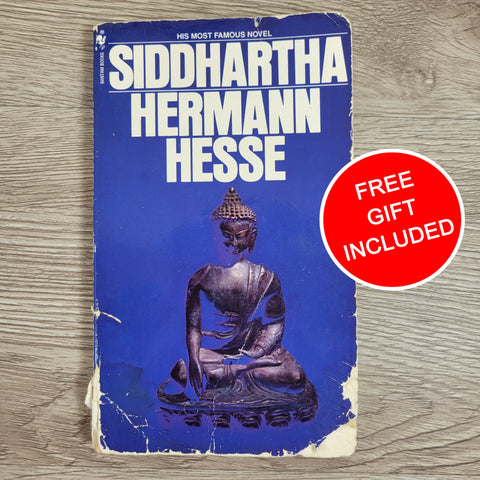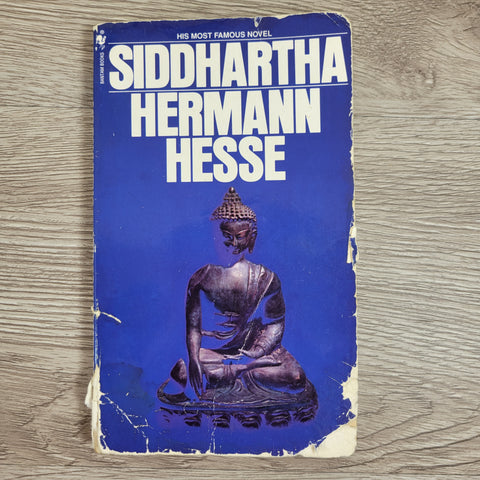Categories
-
 Autographed Books
(2)
Autographed Books
(2)
-
 Bhakti Yoga
(165)
Bhakti Yoga
(165)
-
 Biographies
(1)
Biographies
(1)
-
 Books & Magazines
(572)
Books & Magazines
(572)
-
 Buddhism
(29)
Buddhism
(29)
-
 Children Books
(5)
Children Books
(5)
-
 Computers/Tablets & Networking
(0)
Computers/Tablets & Networking
(0)
-
 Dummies & Idiots
(1)
Dummies & Idiots
(1)
-
 DVDs and CDs
(36)
DVDs and CDs
(36)
-
 Fiction
(5)
Fiction
(5)
-
 Health & Exercise
(9)
Health & Exercise
(9)
-
 Hinduism
(274)
Hinduism
(274)
-
 Home & Garden
(0)
Home & Garden
(0)
-
 Judaism
(1)
Judaism
(1)
-
 Magazines
(51)
Magazines
(51)
-
 Martial Arts
(6)
Martial Arts
(6)
-
 Martial Arts Videos
(0)
Martial Arts Videos
(0)
-
 Movies & TV
(0)
Movies & TV
(0)
-
 Music & Musicians
(0)
Music & Musicians
(0)
-
 New Age
(14)
New Age
(14)
-
 Osho Books
(296)
Osho Books
(296)
-
 Other
(4)
Other
(4)
-
 Philosophy
(16)
Philosophy
(16)
-
 Prabhuji's Books
(189)
Prabhuji's Books
(189)
-
 Practical Guides
(3)
Practical Guides
(3)
-
 Rare Books
(31)
Rare Books
(31)
-
 Self Help
(8)
Self Help
(8)
-
 Shamanism
(1)
Shamanism
(1)
-
 Spiritual Books
(631)
Spiritual Books
(631)
Price Range
$10.00 - $1,000.00
Fiction
Showing all 1 Products
- Grid List
{"id":7011633692719,"title":"Siddhartha by Hermann Hesse Paperback 1971","handle":"copy-of-siddhartha-by-hermann-hesse-paperback","description":"\u003ch3 style=\"text-align: center;\"\u003eSiddhartha\u003c\/h3\u003e\n\u003ch3 style=\"text-align: center;\"\u003eby Hermann Hesse \u003c\/h3\u003e\n\u003ch3 style=\"text-align: center;\" data-mce-style=\"text-align: center;\"\u003e\u003cstrong\u003e *** Spiritual Book Gift with this order ***\u003c\/strong\u003e\u003c\/h3\u003e\n\u003cp\u003eSiddhartha is a novel by Hermann Hesse that deals with the spiritual journey of self-discovery of a man named Siddhartha during the time of the Gautama Buddha. The book, Hesse's ninth novel, was written in German, in a simple, lyrical style.\u003cbr\u003e \u003cbr\u003eThe story takes place in the Nepalese district of Kapilavastu. Siddhartha decides to leave behind his home in the hope of gaining spiritual illumination by becoming an ascetic wandering beggar of the Shramanas. Joined by his best friend, Govinda, Siddhartha fasts, becomes homeless, renounces all personal possessions, and intensely meditates, eventually seeking and personally speaking with Gautama, the famous Buddha, or Enlightened One. Afterward, both Siddhartha and Govinda acknowledge the elegance of the Buddha's teachings. Although Govinda hastily joins the Buddha's order, Siddhartha does not follow, claiming that the Buddha's philosophy, though supremely wise, does not account for the necessarily distinct experiences of each person. He argues that the individual seeks an absolutely unique, personal meaning that cannot be presented to him by a teacher. He thus resolves to carry on his quest alone.\u003cbr\u003e \u003cbr\u003eSiddhartha crosses a river and the generous ferryman, whom Siddhartha is unable to pay, merrily predicts that Siddhartha will return to the river later to compensate him in some way. Venturing onward toward city life, Siddhartha discovers Kamala, the most beautiful woman he has yet seen. Kamala, a courtesan, notes Siddhartha's handsome appearance and fast wit, telling him that he must become wealthy to win her affections so that she may teach him the art of love. Although Siddhartha despised materialistic pursuits as a Shramana, he agrees now to Kamala's suggestions. She directs him to the employ of Kamaswami, a local businessman, and insists that he have Kamaswami treat him as an equal rather than an underling. Siddhartha easily succeeds, providing a voice of patience and tranquility, which Siddhartha learned from his days as an ascetic, against Kamaswami's fits of passion. Thus Siddhartha becomes a rich man and Kamala's lover, though in his middle years he realizes that the luxurious lifestyle he has chosen is merely a game that lacks spiritual fulfillment. Leaving the fast-paced bustle of the city, Siddhartha returns to the river and thinks of a new existence and is saved only by an internal experience of the holy word, Om. The very next morning, Siddhartha briefly reconnects with Govinda, who is passing through the area as a wandering Buddhist.\u003cbr\u003e \u003cbr\u003eSiddhartha decides to live the rest of his life in the presence of the spiritually inspirational river. Siddhartha thus reunites with the ferryman, named Vasudeva, with whom he begins a humbler way of life. Although Vasudeva is a simple man, he understands and relates that the river has many voices and significant messages to divulge to any who might listen.\u003cbr\u003e \u003cbr\u003eSome years later, Kamala, now a Buddhist convert, is travelling to see the Buddha at his deathbed, accompanied reluctantly by her young son, when she is bitten by a venomous snake near Siddhartha's river. Siddhartha recognizes her and realizes that the boy is his own child. After Kamala's death, Siddhartha attempts to console and raise the furiously resistant boy, until one day the child flees altogether. Although Siddhartha is desperate to find his runaway son, Vasudeva urges him to let the boy find his own path, much like Siddhartha did himself in his youth. Listening to the river with Vasudeva, Siddhartha realizes that time is an illusion and that all of his feelings and experiences, even those of suffering, are part of a great and ultimately jubilant fellowship of all things connected in the cyclical unity of nature. After Siddhartha's moment of illumination, Vasudeva claims that his work is done and he must depart into the woods, leaving Siddhartha peacefully fulfilled and alone once more.\u003cbr\u003e \u003cbr\u003eToward the end of his life, Govinda hears about an enlightened ferryman and travels to Siddhartha, not initially recognizing him as his old childhood friend. Govinda asks the now-elderly Siddhartha to relate his wisdom and Siddhartha replies that for every true statement there is an opposite one that is also true; that language and the confines of time lead people to adhere to one fixed belief that does not account for the fullness of the truth. Because nature works in a self-sustaining cycle, every entity carries in it the potential for its opposite and so the world must always be considered complete. Siddhartha simply urges people to identify and love the world in its completeness. Siddhartha then requests that Govinda kiss his forehead and, when he does, Govinda experiences the visions of timelessness that Siddhartha himself saw with Vasudeva by the river. Govinda bows to his wise friend and Siddhartha smiles radiantly, having found enlightenment.\u003c\/p\u003e\n\u003cp\u003ePublication: Bantan Books, 1971, paperback\u003c\/p\u003e\n\u003cp\u003eISBN: 978-0553208849\u003c\/p\u003e\n\u003cp\u003ePages: 152\u003c\/p\u003e\n\u003cp\u003e\u003cstrong data-mce-fragment=\"1\"\u003eBook Condition: Used, Acceptable\u003c\/strong\u003e: The book has obvious wear, and the cover and spine shows signs noticeable signs of wear, but the book integrity is intact. There are no writing in the margins, underlining or highlighting of text. There are no missing pages or anything that would compromise the legibility or understanding of the text. Natural browning of the pages. \u003cspan data-mce-fragment=\"1\"\u003ePlease see the pictures for more details. \u003c\/span\u003e\u003c\/p\u003e","published_at":"2022-05-04T18:31:24-04:00","created_at":"2022-05-04T10:44:55-04:00","vendor":"Montecinos Used Books","type":"Books:Fiction \u0026 Literature","tags":["Condition_Acceptable","Format_Paperback","Language_English"],"price":800,"price_min":800,"price_max":800,"available":true,"price_varies":false,"compare_at_price":null,"compare_at_price_min":0,"compare_at_price_max":0,"compare_at_price_varies":false,"variants":[{"id":40852419969071,"title":"Default Title","option1":"Default Title","option2":null,"option3":null,"sku":"MB2-008","requires_shipping":true,"taxable":true,"featured_image":null,"available":true,"name":"Siddhartha by Hermann Hesse Paperback 1971","public_title":null,"options":["Default Title"],"price":800,"weight":130,"compare_at_price":null,"inventory_management":"shopify","barcode":"","requires_selling_plan":false,"selling_plan_allocations":[]}],"images":["\/\/meditativebooks.com\/cdn\/shop\/products\/Siddhartha-acceptible-gift.jpg?v=1651703456","\/\/meditativebooks.com\/cdn\/shop\/products\/20220504_114105.jpg?v=1651703456","\/\/meditativebooks.com\/cdn\/shop\/products\/20220504_114109.jpg?v=1651703456","\/\/meditativebooks.com\/cdn\/shop\/products\/20220504_114116.jpg?v=1651703456","\/\/meditativebooks.com\/cdn\/shop\/products\/20220504_114124.jpg?v=1651703456","\/\/meditativebooks.com\/cdn\/shop\/products\/20220504_114133.jpg?v=1651703456","\/\/meditativebooks.com\/cdn\/shop\/products\/20220504_114143.jpg?v=1651703456","\/\/meditativebooks.com\/cdn\/shop\/products\/20220504_114158.jpg?v=1651703456"],"featured_image":"\/\/meditativebooks.com\/cdn\/shop\/products\/Siddhartha-acceptible-gift.jpg?v=1651703456","options":["Title"],"media":[{"alt":null,"id":23717621956655,"position":1,"preview_image":{"aspect_ratio":1.0,"height":3024,"width":3024,"src":"\/\/meditativebooks.com\/cdn\/shop\/products\/Siddhartha-acceptible-gift.jpg?v=1651703456"},"aspect_ratio":1.0,"height":3024,"media_type":"image","src":"\/\/meditativebooks.com\/cdn\/shop\/products\/Siddhartha-acceptible-gift.jpg?v=1651703456","width":3024},{"alt":null,"id":23717621727279,"position":2,"preview_image":{"aspect_ratio":1.0,"height":3024,"width":3024,"src":"\/\/meditativebooks.com\/cdn\/shop\/products\/20220504_114105.jpg?v=1651703456"},"aspect_ratio":1.0,"height":3024,"media_type":"image","src":"\/\/meditativebooks.com\/cdn\/shop\/products\/20220504_114105.jpg?v=1651703456","width":3024},{"alt":null,"id":23717621760047,"position":3,"preview_image":{"aspect_ratio":1.0,"height":3024,"width":3024,"src":"\/\/meditativebooks.com\/cdn\/shop\/products\/20220504_114109.jpg?v=1651703456"},"aspect_ratio":1.0,"height":3024,"media_type":"image","src":"\/\/meditativebooks.com\/cdn\/shop\/products\/20220504_114109.jpg?v=1651703456","width":3024},{"alt":null,"id":23717621792815,"position":4,"preview_image":{"aspect_ratio":1.0,"height":3024,"width":3024,"src":"\/\/meditativebooks.com\/cdn\/shop\/products\/20220504_114116.jpg?v=1651703456"},"aspect_ratio":1.0,"height":3024,"media_type":"image","src":"\/\/meditativebooks.com\/cdn\/shop\/products\/20220504_114116.jpg?v=1651703456","width":3024},{"alt":null,"id":23717621825583,"position":5,"preview_image":{"aspect_ratio":1.0,"height":3024,"width":3024,"src":"\/\/meditativebooks.com\/cdn\/shop\/products\/20220504_114124.jpg?v=1651703456"},"aspect_ratio":1.0,"height":3024,"media_type":"image","src":"\/\/meditativebooks.com\/cdn\/shop\/products\/20220504_114124.jpg?v=1651703456","width":3024},{"alt":null,"id":23717621858351,"position":6,"preview_image":{"aspect_ratio":1.0,"height":3024,"width":3024,"src":"\/\/meditativebooks.com\/cdn\/shop\/products\/20220504_114133.jpg?v=1651703456"},"aspect_ratio":1.0,"height":3024,"media_type":"image","src":"\/\/meditativebooks.com\/cdn\/shop\/products\/20220504_114133.jpg?v=1651703456","width":3024},{"alt":null,"id":23717621891119,"position":7,"preview_image":{"aspect_ratio":1.0,"height":3024,"width":3024,"src":"\/\/meditativebooks.com\/cdn\/shop\/products\/20220504_114143.jpg?v=1651703456"},"aspect_ratio":1.0,"height":3024,"media_type":"image","src":"\/\/meditativebooks.com\/cdn\/shop\/products\/20220504_114143.jpg?v=1651703456","width":3024},{"alt":null,"id":23717621923887,"position":8,"preview_image":{"aspect_ratio":1.0,"height":3024,"width":3024,"src":"\/\/meditativebooks.com\/cdn\/shop\/products\/20220504_114158.jpg?v=1651703456"},"aspect_ratio":1.0,"height":3024,"media_type":"image","src":"\/\/meditativebooks.com\/cdn\/shop\/products\/20220504_114158.jpg?v=1651703456","width":3024}],"requires_selling_plan":false,"selling_plan_groups":[],"content":"\u003ch3 style=\"text-align: center;\"\u003eSiddhartha\u003c\/h3\u003e\n\u003ch3 style=\"text-align: center;\"\u003eby Hermann Hesse \u003c\/h3\u003e\n\u003ch3 style=\"text-align: center;\" data-mce-style=\"text-align: center;\"\u003e\u003cstrong\u003e *** Spiritual Book Gift with this order ***\u003c\/strong\u003e\u003c\/h3\u003e\n\u003cp\u003eSiddhartha is a novel by Hermann Hesse that deals with the spiritual journey of self-discovery of a man named Siddhartha during the time of the Gautama Buddha. The book, Hesse's ninth novel, was written in German, in a simple, lyrical style.\u003cbr\u003e \u003cbr\u003eThe story takes place in the Nepalese district of Kapilavastu. Siddhartha decides to leave behind his home in the hope of gaining spiritual illumination by becoming an ascetic wandering beggar of the Shramanas. Joined by his best friend, Govinda, Siddhartha fasts, becomes homeless, renounces all personal possessions, and intensely meditates, eventually seeking and personally speaking with Gautama, the famous Buddha, or Enlightened One. Afterward, both Siddhartha and Govinda acknowledge the elegance of the Buddha's teachings. Although Govinda hastily joins the Buddha's order, Siddhartha does not follow, claiming that the Buddha's philosophy, though supremely wise, does not account for the necessarily distinct experiences of each person. He argues that the individual seeks an absolutely unique, personal meaning that cannot be presented to him by a teacher. He thus resolves to carry on his quest alone.\u003cbr\u003e \u003cbr\u003eSiddhartha crosses a river and the generous ferryman, whom Siddhartha is unable to pay, merrily predicts that Siddhartha will return to the river later to compensate him in some way. Venturing onward toward city life, Siddhartha discovers Kamala, the most beautiful woman he has yet seen. Kamala, a courtesan, notes Siddhartha's handsome appearance and fast wit, telling him that he must become wealthy to win her affections so that she may teach him the art of love. Although Siddhartha despised materialistic pursuits as a Shramana, he agrees now to Kamala's suggestions. She directs him to the employ of Kamaswami, a local businessman, and insists that he have Kamaswami treat him as an equal rather than an underling. Siddhartha easily succeeds, providing a voice of patience and tranquility, which Siddhartha learned from his days as an ascetic, against Kamaswami's fits of passion. Thus Siddhartha becomes a rich man and Kamala's lover, though in his middle years he realizes that the luxurious lifestyle he has chosen is merely a game that lacks spiritual fulfillment. Leaving the fast-paced bustle of the city, Siddhartha returns to the river and thinks of a new existence and is saved only by an internal experience of the holy word, Om. The very next morning, Siddhartha briefly reconnects with Govinda, who is passing through the area as a wandering Buddhist.\u003cbr\u003e \u003cbr\u003eSiddhartha decides to live the rest of his life in the presence of the spiritually inspirational river. Siddhartha thus reunites with the ferryman, named Vasudeva, with whom he begins a humbler way of life. Although Vasudeva is a simple man, he understands and relates that the river has many voices and significant messages to divulge to any who might listen.\u003cbr\u003e \u003cbr\u003eSome years later, Kamala, now a Buddhist convert, is travelling to see the Buddha at his deathbed, accompanied reluctantly by her young son, when she is bitten by a venomous snake near Siddhartha's river. Siddhartha recognizes her and realizes that the boy is his own child. After Kamala's death, Siddhartha attempts to console and raise the furiously resistant boy, until one day the child flees altogether. Although Siddhartha is desperate to find his runaway son, Vasudeva urges him to let the boy find his own path, much like Siddhartha did himself in his youth. Listening to the river with Vasudeva, Siddhartha realizes that time is an illusion and that all of his feelings and experiences, even those of suffering, are part of a great and ultimately jubilant fellowship of all things connected in the cyclical unity of nature. After Siddhartha's moment of illumination, Vasudeva claims that his work is done and he must depart into the woods, leaving Siddhartha peacefully fulfilled and alone once more.\u003cbr\u003e \u003cbr\u003eToward the end of his life, Govinda hears about an enlightened ferryman and travels to Siddhartha, not initially recognizing him as his old childhood friend. Govinda asks the now-elderly Siddhartha to relate his wisdom and Siddhartha replies that for every true statement there is an opposite one that is also true; that language and the confines of time lead people to adhere to one fixed belief that does not account for the fullness of the truth. Because nature works in a self-sustaining cycle, every entity carries in it the potential for its opposite and so the world must always be considered complete. Siddhartha simply urges people to identify and love the world in its completeness. Siddhartha then requests that Govinda kiss his forehead and, when he does, Govinda experiences the visions of timelessness that Siddhartha himself saw with Vasudeva by the river. Govinda bows to his wise friend and Siddhartha smiles radiantly, having found enlightenment.\u003c\/p\u003e\n\u003cp\u003ePublication: Bantan Books, 1971, paperback\u003c\/p\u003e\n\u003cp\u003eISBN: 978-0553208849\u003c\/p\u003e\n\u003cp\u003ePages: 152\u003c\/p\u003e\n\u003cp\u003e\u003cstrong data-mce-fragment=\"1\"\u003eBook Condition: Used, Acceptable\u003c\/strong\u003e: The book has obvious wear, and the cover and spine shows signs noticeable signs of wear, but the book integrity is intact. There are no writing in the margins, underlining or highlighting of text. There are no missing pages or anything that would compromise the legibility or understanding of the text. Natural browning of the pages. \u003cspan data-mce-fragment=\"1\"\u003ePlease see the pictures for more details. \u003c\/span\u003e\u003c\/p\u003e"}
You may also like:
Siddhartha by Hermann Hesse Paperback 1971
Siddhartha by Hermann Hesse *** Spiritual Book Gift with this order *** Siddhartha is a...
$8.00



































